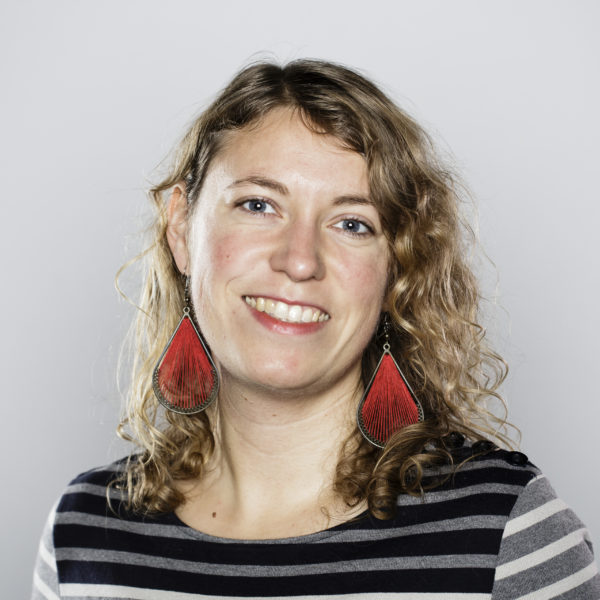Postdoctoral Fellow, Social Anthropology
Biography
Cornelia is postdoctoral researcher at the Centre for Energy Ethics. As political ecologist, she has studied renewable energy and land conflicts in Colombia since 2011. Her new book Engineering Reality: The politics of environmental impact assessments and future challenges of green energy development in Colombia discusses the role of the environmental impact assessment as a tool to legitimise controversial energy infrastructure and proposes the Energy Data Justice Framework to assess energy projects.
Her long-term involvement with rural farming communities and their struggle for recognition as environmental-conscious actors with rights and responsibilities to their lands inspired Cornelia to look at forms of community ownership and the potential of local deliberation to reach the just transition.
Since September 2022, Cornelia has been co-principal investigator of the University-funded interdisciplinary research project (StAIRS): Community Priorities in the Creation of Sustainable Futures: An Exploration of Community-led Decision Making in Peatland Restoration Projects in Rural Scotland. In this research, Cornelia gained insight into the difficulty of community bodies to navigate divergent internal needs and aspirations and multiple external policy and business interests concerning land management. Prolific is the case of the Outer Hebrides, which have historically struggled with poor energy infrastructure, absentee landlords, and unemployment. The recent spark of energy prices pushed crofters to reactivate the traditional practice of peat cutting and burning as a cheap energy source from the extensive bogs of the islands. This activity runs counter the Scottish ambition to reach net zero by 2045.
In her upcoming research, Cornelia will look at the complex interactions and contradictions between different net-zero finance schemes, including carbon offsetting and renewable energies, and the local realities of energy poverty and insecurity in the Scottish Highlands and Islands.
Teaching
As Associate Lecturer in Sustainable Development at the University of St Andrews (07/2021 – 08/2023), Cornelia convened the honours modules The Nature of Political Ecology and Extractive Environments. She furthermore taught in several co-convened modules of the Sustainable Development undergraduate and Master programmes, among others, on the topics of green energy extraction, environmental justice, Political Ecology, qualitative data collection and analysis. Prior to arriving at St Andrews, she convened undergraduate modules in International Environment and Development Studies at the Norwegian University of Life Sciences.
Supervision
Alejandra Pizarro Choy (co-supervision), School of Geography and Sustainable Development
Mengqi Peng (co-supervision), School of Geography and Sustainable Development
Ewan Jenkins (co-supervision), School of Geography and Sustainable Development
Find Cornelia’s full research profile here.
Selected publications
Helmcke, C., E. Jenkins and L. Cole (upcoming). “Carbon grab vs. carbon stewardship: a troublesome new land regime in the Outer Hebrides?” Scottish Geographical Journal.
Cole, L., C. Helmcke and E. Jenkins (2023). “Promise of private finance is blocking peatland restoration”. Nature, 623, 483. https://doi.org/10.1038/d41586-023-03539-9
E. Jenkins, C. Helmcke and L. Cole (2023). Peatland Restoration: A Guide for Crofting Communities. University of St Andrews.
Helmcke, C. (2023). Engineering Reality: The politics of environmental impact assessments and future challenges of green energy development in Colombia. Cham: Palgrave Macmillan.
Helmcke, C. (2023). “Technology of Detachment: The promise of renewable energy and its contentious reality in the South of Colombia”. Environment & Planning C: Politics and Space, 41(5). https://doi.org/10.1177/23996544231168390
Helmcke, C. (2022). “Ten recommendations for political ecology case research”. Journal of Political Ecology, 29(1), 266–276. https://doi.org/10.2458/jpe.2842




